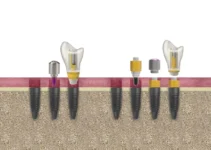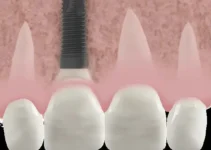Maintaining healthy gums around dental implants is crucial for their longevity and your overall oral health. Proper care not only prevents peri-implantitis but also ensures your investment lasts a lifetime. While dental implants can’t develop cavities, the surrounding gum tissue requires specific attention and care to maintain optimal health and prevent complications that could compromise the implant’s stability.
Recommendations to keep your gums healthy if you have dental implants
Maintaining optimal gum health around dental implants is crucial for their long-term success. Research shows that proper oral hygiene can prevent peri-implantitis, a serious condition affecting up to 22% of implant patients. The key to success lies in implementing a comprehensive daily care routine that focuses on removing bacteria and plaque buildup around the implant-supported restoration.

Daily Cleaning Techniques and Tools
Professional studies recommend a multi-step approach to implant maintenance. This includes using specialized tools and techniques designed specifically for implant care. The most effective cleaning routine should incorporate the following essential elements:
- Soft-bristled toothbrush or electric toothbrush with implant-specific heads
- Interdental brushes with non-metal filaments
- Water flossers set at appropriate pressure levels
- Antimicrobial mouth rinses specifically formulated for implants
- Unwaxed tape or implant-specific floss
Professional Care and Regular Check-ups
According to the International Journal of Oral & Maxillofacial Implants, regular professional maintenance is essential for implant longevity. Dental professionals recommend scheduling check-ups every 3-6 months, depending on individual risk factors. These visits should include professional cleaning, assessment of implant stability, and evaluation of surrounding tissue health. Studies have shown that patients who maintain regular professional care appointments have a significantly lower risk of developing implant complications. Understanding the signs of potential problems is equally important for maintaining healthy gums around implants. Watch for symptoms such as bleeding, swelling, or discomfort around the implant site. Early detection and intervention can prevent more serious complications and ensure the longevity of your dental implant investment. For more detailed information about implant care and maintenance, we encourage you to explore our other articles on advanced dental implant technologies and treatment options.
Common questions about dental implant gum care
Maintaining healthy gums around dental implants is crucial for their longevity and your overall oral health. Here are the most frequently asked questions about proper gum care for dental implant patients.
How often should I clean around my dental implants?
You should clean around your dental implants at least twice daily using a soft-bristled toothbrush and specialized implant cleaning tools. Pay extra attention to the gum line area where the implant meets the gum tissue.
What are the signs of gum problems around implants?
Watch out for redness, swelling, bleeding when brushing, bad taste or breath, and any discomfort around the implant area. These could be signs of peri-implantitis and require immediate professional attention.
Can I use regular dental floss around my implants?
While regular floss can work, it’s better to use implant-specific floss or interdental brushes designed for implants. These tools are gentler on the gums and more effective at cleaning around the implant structure.
How long should I wait after implant surgery to resume normal cleaning?
Follow your dentist’s specific instructions, but typically you should wait 1-2 weeks before gently cleaning around the implant site. Full cleaning routines can usually resume after 4-6 weeks, once initial healing is complete.




